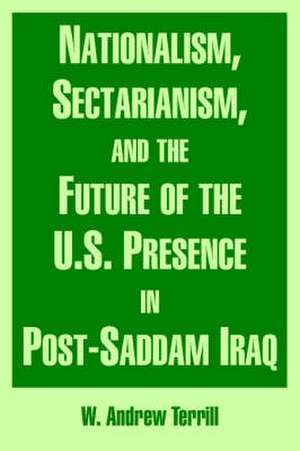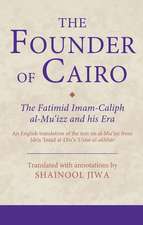Nationalism, Sectarianism, and the Future of the U.S. Presence in Post-Saddam Iraq
Autor W. Andrew Terrillen Limba Engleză Paperback – 30 sep 2004
Preț: 104.32 lei
Nou
Puncte Express: 156
Preț estimativ în valută:
19.96€ • 20.84$ • 16.52£
19.96€ • 20.84$ • 16.52£
Carte tipărită la comandă
Livrare economică 04-18 aprilie
Preluare comenzi: 021 569.72.76
Specificații
ISBN-13: 9781410217479
ISBN-10: 1410217477
Pagini: 56
Dimensiuni: 152 x 229 x 3 mm
Greutate: 0.1 kg
Editura: University Press of the Pacific
Locul publicării:United States
ISBN-10: 1410217477
Pagini: 56
Dimensiuni: 152 x 229 x 3 mm
Greutate: 0.1 kg
Editura: University Press of the Pacific
Locul publicării:United States


















